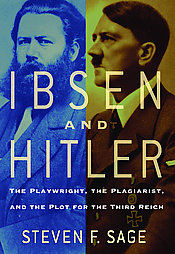Tony Paulsen: Here are some thoughts on the British general election — not, you will note, an ex cathedra pronouncement! [Editor’s Note: In his current TOO article, Alex Kurtagic thinks it was all a waste of time.]
I’ll begin with the system parties, and move on to the patriotic right.
It’s strange to see a three horse race in which all three horses lose, but Lib/Lab/Con have managed this remarkable feat. Labour have lost 91 seats in our 650 seat Parliament, while the system’s much hyped faux alternative, the Liberals, lost five seats, rather than make the large gains predicted before the poll. They now hold 57 seats.
The Conservative party, standing on a manifesto of change (think about that for a Conservative party!) gained 97 seats, and now hold 306, but are twenty short of an overall majority.
One seat remains vacant, as a candidate died during the campaign. A bye-election will be held in a few weeks, when the Conservatives should take the seat, pushing them up to 307.
Outside Ulster, which has its own political dynamic, the only minor party to gain a seat was the Greens (more on them anon), while the sole Independent in Parliament lost his, despite being much praised as an honourable and competent member.
The Democratic Unionist Party holds eight Ulster seats, after losing East Belfast, one of the most staunchly Protestant and Unionist seats in Northern Ireland, to the very liberal Alliance party on a three way split in the Unionist vote, exacerbated by the scandals surrounding land deals involving DUP leader Peter Robinson and his wife. The three way split in Unionism also cost the Unionist parties South Belfast. Lady Hermon sits as an Independent Unionist for North Down, making nine Unionists in the House of Commons.
Even supposing the Tories (Conservatives) could persuade all nine Unionists to support them reliably, they would still be eleven seats short of an overall majority, so they are negotiating with the Liberals.
Personally, if I were in Tory leader David Cameron’s shoes, I would thank my lucky stars that I did not have to take office and impose an austerity budget of unprecedented severity on a populace not exactly enured to hardship. I would seek to manoeuvre the Liberals into a coalition with Labour, so that they can reap the odium that will follow.
Such however appears to be Cameron’s vanity and his unbridled desire for office at any price that he may rush in where others might fear to tread, unless, of course, his present courtship of the Liberals is a Machiavellian manoeuvre designed to drive them into the arms of Labour when he eventually fails to propose marriage!
Moving on to the performance of the patriotic right, there are basically three contenders in the field. Two are essentially civic nationalists, the United Kingdom Independence Party and the English Democrats.
The EDs, whose ostensible concern is to obtain a devolved Parliament for England, but whose real objective is the end of the Union, and independence for England, performed terribly. I need waste no more time on them.
UKIP, whose original purpose was to oppose British membership of the European union, but which has tried to rebrand itself as a more broadly based party of the populist right, opposing further immigration into England, is a much more formidable force than the hopeless EDs. It polled 917,832 votes across the country.
Nevertheless, these votes were thinly spread, and nowhere did it approach winning a seat under out “first past the post” system.
Last year, UKIP came second in England and Wales in the elections to the European parliament, after the Conservatives, but ahead of the ruling Labour party, an extraordinary performance. This year, most of those voters plainly went back to the Conservative party, whence they came.
It is tolerably clear that UKIP can only win really big votes in elections to a parliament of whose existence it theoretically disapproves, an unusual state of affairs to say the least.
The BNP made a huge electoral effort, contesting 339 of the 650 seats in Parliament and polling 563,743 votes.
One mystery is what possessed Nick Griffin to contest 339 seats. There was no obvious purpose in contesting more than the number needed to secure a broadcast on television and radio (in England, political parties may not buy air time. The television and radio stations, whether state or privately owned, must provide a certain amount of free air time to each party contesting more than a minimum number of seats, I believe c. 110, so it would have made sense to fight c. 120 seats to allow for errors in filling in the nomination papers: similar arrangements obtain in Scotland, Wales and Northern Ireland on local television and radio. Obviously the number of seats involved in those countries is far smaller).
The contrast with the Green party, which enjoys roughly similar electoral support to the BNP, could not be starker. The Greens concentrated their limited resources in one or two constituencies in which they are particularly strong, and took a seat, their first ever win at this level.
The BNP leadership on the other hand was overcome by hubris in the run up to this election, and nemesis duly followed.
Nick Griffin had thought that he might win the Barking (East London) seat from the Labour incumbent, Margaret Hodge, née Oppenheimer, scion of a wealthy Jewish family that fled Germany in the 1930s.
In the event, his share of the vote fell from the 16% that the BNP polled in the 2005 election to 14%, and he trailed in third after the Conservative candidate. Hodge was triumphantly re-elected.
Griffin’s deputy, the enigmatic Simon Darby (widely known in movement circles as 5IMon because of his alleged role as an agent of our equivalent of the FBI, MI5) failed to take Stoke on Trent Central, another seat that the BNP had high hopes of actually winning. Instead, he came fourth.
In a dénouement worthy of the book of Esther, “Haman’s sons”, the twelve BNP councillors on Barking council, all lost their seats in the local elections held on the same day.
Up and down the land, BNP councillors lost their seats in the worst electoral reverse that the movement has ever suffered (in fairness, mainly because until recently it never got more than one or two stray councillors elected, so didn’t have seats to lose).
It is plain that the party’s abandonment of the once successful strategy of concentrating on sinking deep local roots in carefully selected communities that are more receptive to its message than the mass of the people at this stage in its development in favour of a massive effort at national level has failed completely.
So what are the positives? (Yes, there are some!). Well, to poll 563,743 votes in 339 of the 650 seats suggests that there are about 1,000,000 people willing to vote BNP in the United Kingdom, even under an electoral system that makes a vote for a minor party a wasted vote in most constituencies, so that most electors choose whichever of the major parties they dislike less.
Were we one day to move to a more proportional system (not unlikely, as the Liberals will demand it as the price of their participation in a coalition) it is plausible that a phalanx of nationalists would eventually enter the establishment’s sanctum sanctorum. Of course the system parties will try to rig the electoral system to exclude nationalists, but it is difficult to do that, especially in times of serious economic hardship that make radical alternatives to the existing system more appealing to the people.
On the down side, morale in BNP circles will now slump in the short term and not easily be revived. At the end of this year, the party will almost inevitably lose members (it has a “churn” rate of c. 25%, that is to say, one in four does not renew at each year end: this year it is hardly plausible that new members will join to replace those who leave).
It will be interesting to see how the party membership now views its leadership, and whether any credible challenger to Nick Griffin emerges.
The party’s strained finances are under investigation by the authorities after it failed its audit last year, while the 2009 accounts are shortly due. Quite why vast sums of money have been sent “over the water” to its strange Northern Ireland based fund-raiser, “the Rev.” Jim Dowson, a bogus evangelist straight out of Elmer Gantry, is one of the many questions that will have to be addressed in those accounts.
Whether the party can put its financial affairs in order remains to be seen, and will be a crucial factor in determining whether the BNP continues under its present leadership, or drops its pilot (who won’t go willingly).
Tony Paulsen is a pen name.
 In Ibsen and Hitler, Steven F. Sage assesses the impact Henrik Ibsen’s plays had on the development of Adolf Hitler’s Weltanschauung and place in history. Sage, who completed the book as a scholar at the Center for Advanced Holocaust Studies of the U.S. Holocaust Memorial Museum, must be read with caution because he moves rapidly from Hitler’s appreciation of Ibsen’s plays, especially Emperor and Galilean, which is factual and convincing, to what the author considers the dictator’s slavish obsession and identification with the playwright’s other plots and characters, which is far less convincing. Always mindful that this book has been written to further traduce the National Socialist leaders of the period, nonetheless much of the material introduced is new to the American reader and well worth examining.
In Ibsen and Hitler, Steven F. Sage assesses the impact Henrik Ibsen’s plays had on the development of Adolf Hitler’s Weltanschauung and place in history. Sage, who completed the book as a scholar at the Center for Advanced Holocaust Studies of the U.S. Holocaust Memorial Museum, must be read with caution because he moves rapidly from Hitler’s appreciation of Ibsen’s plays, especially Emperor and Galilean, which is factual and convincing, to what the author considers the dictator’s slavish obsession and identification with the playwright’s other plots and characters, which is far less convincing. Always mindful that this book has been written to further traduce the National Socialist leaders of the period, nonetheless much of the material introduced is new to the American reader and well worth examining.





